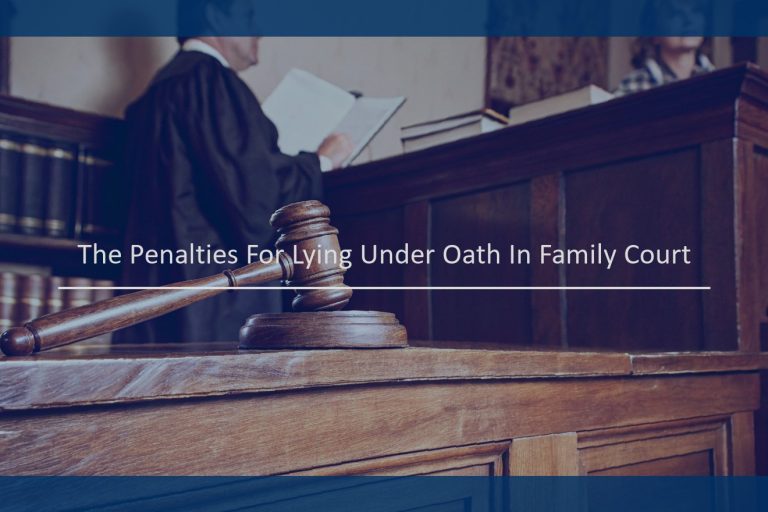What is an Offer to Purchase and Contract?
In North Carolina, an Offer to Purchase and Contract (commonly referred to as an "OTP") is a legally binding agreement that outlines the terms and conditions of a real estate transaction. This document typically follows Make Your Own Package and incorporates very specific contractual provisions under North Carolina law. When the Buyer submits a written offer, typically a REALTOR will prepare this document, which outlines all of the items that the Buyer and Seller have agreed upon for purposes of the sale . Items that are typically included in an OTP are the purchase price, closing date, earnest money deposit, and contingencies. These contingencies may include home inspections, timelines for HOA documents and/or the Buyer selling their current house.
Once the Buyer and Seller agree to the terms included in an OTP, they both sign the offer and it becomes a legally binding, enforceable contract! The OTP is the second important step in the home buying process, behind securing financing and being preapproved.

The Major Parts of the Document
One of the keys to understanding the Offer To Purchase and Contract in NC is to know what you are agreeing to when you sign it. The contract lays out for both parties exactly what is needed to bring the deal to a closing and what rights and remedies each party has against the other should something not go according to plan. For example, if the buyer fails to obtain a loan in time to complete the agreement, the seller has certain remedies that he can pursue. On the other hand, if the seller fails to perform his obligations under the contract, the buyer has remedies available to him as well. This post will address some of the most common components to the sales contract, and will provide some insight into what your obligations are under it.
The amount of the purchase price and when it is due at closing is something that all buyers and sellers must agree on before executing an Offer to Purchase and Contract. There are other items that the parties must agree on as well: the date for closing, possession of the property, whether or not the contract is subject to financing, home inspection, or other limitations. These terms encompass most of the contract, but an experienced real estate attorney can properly advise homebuyers on other terms that should be considered before signing.
Buyer Duties
Once an Offer to Purchase and Contract is signed, the buyer and seller have substantial responsibilities prior to closing. In North Carolina, the closing attorneys are usually designated in the Offer to Purchase and Contract. That attorney assumes different responsibilities depending on whether that attorney represents the buyer or the seller. As a closing attorney, once appointed, you can never represent both the buyer and the seller in that transaction. The available options are to always represent either the buyer or the seller, or to be hired as the settlement agent and conduct the transaction under the North Carolina Closing Attorney Settlement Statement, 11 NCAC 10.1108.
If the buyer allows the contract to be renegotiated by the listing agent or the seller’s attorney during the due diligence period, the closing attorney representing the buyer must usually resign upon the execution of that new document. The closing attorney may continue to represent the buyer if the buyer is aware and agrees to the disadvantages of such dual representation, or the closing attorney has obtained an informed, written consent from both parties. The buyers are not required to use their own real estate attorney to review these negotiations, but if they do so, the closing attorney would never serve in that dual capacity.
In North Carolina, the seller is responsible for having the title examined and the buyer ascertains that inspections have been completed when the Offer to Purchase and Contract is signed. The seller is also responsible for obtaining the municipal permit for the transfer of the property. Most high volume lenders or lenders requiring title insurance will not accept an exception to this standard municipal showing of good standing or municipal pay off, so the seller needs to have this obtained as well. There is a difference, however, between providing the buyer with a "municipal authorization for title" and actual title insurance. The municipal authorization requires the signature of the city/county tax collector. The title company cannot provide this due diligence item because it is not authorized to verify that all municipal liens and recording taxes are paid.
The buyer is responsible for performing pest inspections and other certifications, which must be provided to the seller a minimum of three days before closing to allow the seller to obtain his closing documents.
Seller Duties
Contingencies and Protections help balance the interests of both buyers and sellers when the buyer is subject to obtaining financing or performing certain other due diligence processes over a specific period of time. In North Carolina, this generally involves negotiating a "due diligence period" in which the buyer has the right to fully inspect the property and terminate for any reason without penalty. Speaking generally, this removes almost all risks from the buyer and places most of the risk on the seller for the agreed upon time period. This serves as an incentive for the buyer to act quickly to perform financial due diligence and to secure long term loan approval, such that once the due diligence timeframe expires, you can set a closing date when you know the buyer has the funding needed.
In addition, if the buyer is seeking financing in order to purchase the property, the contract can be made contingent on the buyer actually obtaining approval for the financing. Notably, the timing of the buyer’s loan approval is rarely seen as problematic. This is because many lenders provide a Letter of Commitment with expiration dates 60-90 days in the future. Despite this ability to reapply for loan approval, many lenders will only grant the loan approval if the loan request is submitted within a 30 day window of the loan approval expiration. There are very limited contingencies for home purchases that are not dependent on financing; however, these contingencies are commonly utilized. One example is the real estate contract standard form for unimproved lots or land. Here, the buyer is often granted an extensive due diligence period in order to facilitate environmental testing and assessments or zoning/permitting requirements. Any items not satisfactorily satisfied during the due diligence period allow the buyer to terminate and recover its earnest money deposit.
Contingencies and Protections
When either the buyer or the seller breaches the Offer to Purchase and Contract, legal disputes over specific performance and forfeited earnest money can arise. Happens all the time.
Lawyers for both parties may be able to keep the deal moving forward to see if things can be worked out, or they may ultimately need to appear before a real estate court commissioner (or district court judge) to get a presiding judge’s order requiring the parties to proceed with closing.
Either way, lawyers are likely to face a thoroughly vetted legal argument by the other side that time is of the essence in the Offer to Purchase and Contract. At a minimum, the buyer has likely not been timely in getting that due diligence and any other contingencies met within 14 days as required by some standard forms. This in turn provides the seller with the ability to terminate by sending a signed Notice of Unfulfilled Contingency to the buyer. Once received, the buyer then has a 3-day right to lift the notice by meeting the unmet conditions.
Beyond the due diligence timeframe, other contractual timeframes may be a point of contention. For example, the buyer’s lender not being able to obtain financing by the financing contingency timeframe, which may then trigger the terminated rights and remedies and Offer to Purchase and Contract recitals noted above.
Remember that most disputes over real estate transactions are based on a breach of the offer and contract terms, and not a breach of fiduciary duty. It’s just a basic contract case where the contract has not been honored. Given this fact, the parties may look at the offsetting damages for each party’s failure to properly complete their obligations under the contract and make a settlement proposal to one another.
If all or part of the earnest money will be forfeited, the parties may take this into account when discussing settlement options or monetary payments to finalize their matter.
Legal Ramifications of Breach
The Offer to Purchase and Contract is a mutual agreement between the buyer and seller that lays out the terms of sale of real property. Any Future Addenda to the contract will be referenced and incorporated into the Offer to Purchase and Contract. A home buyer is at a huge advantage in the negotiations by not using a form contract prepared by the seller, such as the one used by real estate agents.
An Offer to Purchase and Contract prepared using the North Carolina Bar Association / North Carolina Association of Realtors Form 2-T with all the blanks filled in is a legally binding contract. Even a blank form with no information filled in is considered an offer.
In the sale of a house, the most common way that an Offer to Purchase and Contract is finalized is via a real estate agent. The real estate agent will usually write the Offer to Purchase and Contract for the buyer and assist in negotiating the Sale Contract with the other party’s agent. Real estate agents have a large volume of business that gives them experience , access to drafts of the contracts and the assistance of attorneys who are on retainer and available to advise them in the negotiation process. The real estate agents benefit from an Offer to Purchase and Contract because they typically receive a higher commission on a smaller sales price and a longer time frame to work on it than Aggressive Buyers and Sellers do in a For Sale By Owner transaction. A knowledgeable and experienced Buyer’s real estate agent is worth his or her commission in the amount of time saved, market knowledge and experience in negotiating the Sale Contract.
Attorneys also get involved in the Offer to Purchase and Contract process and review the terms for the buyer after it has been prepared. After the Offer to Purchase and Contract has become binding on the buyer and seller (or they separate refer to this as "closing" or "settlement"), an attorney will also assist with title research and indebtedness evaluation, among other things. Both the buyer and seller have different interests that have to be maximized and protected. The buyer has the interest in receiving clear title to the property and knowing what it owes. The seller has the interests in maximizing the proceeds from the sale and minimizing the risk of making a mistake that would cost him or her money.
The Role of Real Estate Agents and Attorneys
As the competitive nature of the North Carolina real estate market continues to grow, understanding the factors that can positively impact the terms of your Offer to Purchase and Contract (OP&C) becomes ever more important. One of the first and most important tips for successful negotiation is to remain mindful of safeguarding your best interests on both sides of the transaction. Whether you are the buyer or seller, allowing your emotions to overshadow your negotiating position may result in an unfavorable outcome.
One common strategy that works in today’s market is to increase your initial offer price by a small increment to make your OP&C more competitive. This allows the seller to feel that they are receiving some increment of what they originally sought without losing out on their targeted sale price. In addition, try to limit the due diligence period to 10-15 days, as any due diligence period longer than this makes it easier for the seller to tolerate being patient for a higher price when a buyer is willing to take the risk of being under contract for a longer period of time.
In terms of stipulations and repairs, however, it is generally advantageous for a buyer to provide a list of items requiring attention, rather than a flat enumeration of a repair request, so that the seller is able to review each item and agree with you on the need for repair. It is also generally advantageous for the buyer to avoid requesting repairs unless absolutely necessary. A good practice is to order a thorough inspection so you can peruse the report for any overlooked issues, but not to disclose the report to the seller until negotiations to repair the property are final and fruitful. Additionally, the buyer should always consult a competent building professional for advice on whether to have foundation underpinnings or other major repairs performed.
Of course, one of the most important strategies is to work with a competent, trusted broker whose business model allows them to devote their full attention to you.
Best Practices for Negotiation
The world of real estate contracting can be overwhelming, especially for the first time buyer or seller. In our experience, there are a number of mistakes which homeowners and buyers make when dealing with an Offer to Purchase and Contract, and the vast majority of these mistakes can be avoided with proper education regarding the process. All too often, we see Jo Average Buyer or Sally Seller make poor contracting decisions which have led to legal action, inequitable liability for repairs, and even the inability to close. First among the common mistakes that we would advise buyers and sellers is the practice of making contract changes by hand. You should not simply cross out the stricken language and initial the change. The language in an Offer drafted by a realtor is written to require material or substantive changes to be made by interlineation of the document. This means one must actually write the new clause immediately on top of the old clause or on the indicated line. This will help prevent the upset buyer from saying "Hey, I told you I didn’t want that stone fireplace!" if the fireplace is crossed out and initialed out after their offer.
A riskome contract provision that we do not advise our buyer clients to agree to is the inspection contingency. We consider it to be a mistake to agree to the "Notice of Cure" period if the buyer is seriously considering performing an inspection, however, this should be carefully negotiated with the buyer’s agent. Also, Make sure that your offer to purchase and contract states who is to pay for which repairs, including those found as a result of inspections. In this regard, be aware that a lowered offer price does not necessarily equate to a lower price and repair cost after inspections. As the old adage goes, "saved money today could end up costing you more tomorrow." If your offer gets accepted based on the buyers "luck of the draw" of taking a property "as-is," this could prove to be very costly to the buyer. It is wise to have an inspection performed before you submit your offer so that any necessary negotiations regarding repairs can be had, and not done later.
Finally, realize that oral contracts are not binding and may not be enforced against you if you don’t get everything in writing. An oral agreement as to repair costs is not going to be enforced as an express term of a contract, even if followed by performance. This is subject to some exceptions, of course, but opportunities to save money for oral agreements may not mean the same thing as a binding written agreement, especially if the party who benefitted from the oral agreement is coerced by others into renouncing it. See, e.g. Wiley v. Wiley (discussing enforceability of a purchase price agreement as an exception to the Statute of Frauds), and Shafer v. Downey (discussing statute of frauds in property division agreements). It may also create professional liability for realtors if they do not create an offer to purchase and contract whenever they have an agreement to buy or sell a house. This is a quick overview of the common mistakes we see with our real estate clients.
Common Pitfalls
In the midst of everything we have discussed and learned above, we must remember to not give up our ability to negotiate and be flexible with the terms and provisions contained in an Offer to Purchase and Contract whenever a buyer or seller tries to amend it. Discretion is advised when executing a contract with the intent of consummation. However, should the sales price drop and the buyer decide to walk, all parties will need to reset expectations and be thankful that a buyer was interested enough to enter into the transaction at all .
In summary, the Offer to Purchase and Contract is one of the most important contract forms in North Carolina real estate transactions and should not be taken lightly by those in the industry. Whether a broker, attorney, lender, appraiser, seller, or buyer, each party needs to be aware of its obligations and responsibilities under the contract form, and to ensure that the contract is properly executed and closed. North Carolina brokers are trained on the use of this form, and it is just as important that sellers and buyers research and educate themselves on its terms.




+ There are no comments
Add yours